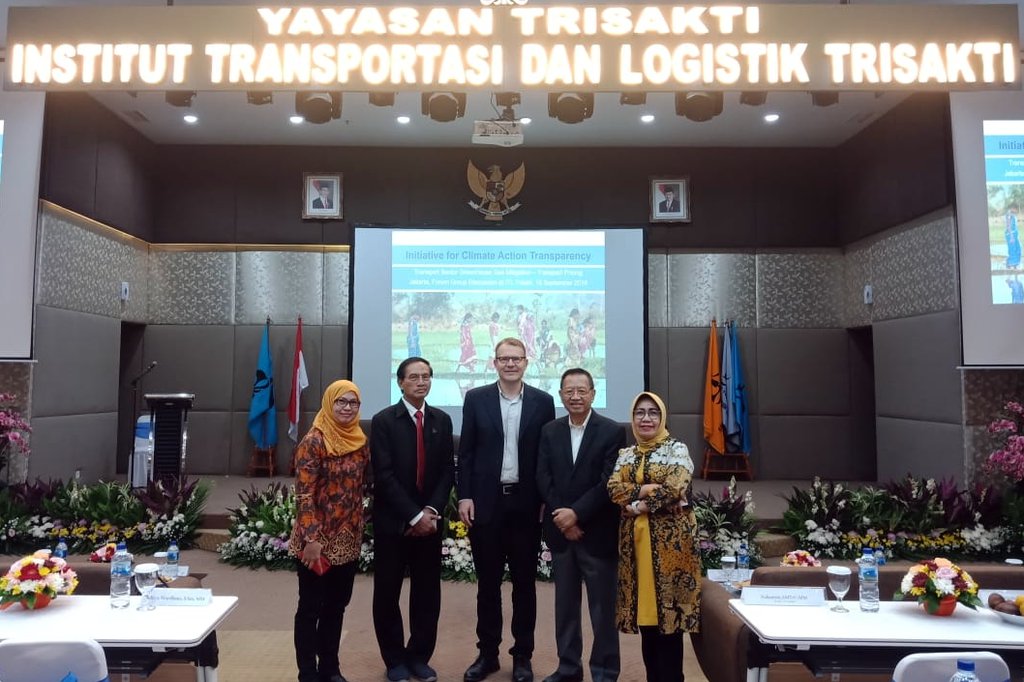Demand for transport is growing rapidly in Indonesia. At the same time the country – which has a population of 260 million – must massively reduce its transport-related CO2 emissions. But just how promising are the measures that are planned? INFRAS developed methods to quantify mitigation impact, and also supported its local road-testing.
The Indonesian economy is on a growth trajectory, with the corresponding increase in demand for transport. The number of registered vehicles in this South-East Asian country is now more than six times what it was in 2000. Around four-fifths of vehicles are motorcycles. The growth poses enormous challenges for the island state, which has a population of around 260 million. That's because, to achieve the targets of the Paris Agreement, Indonesia must reduce greenhouse gas emissions from its transport sector massively over the next few years.
As part of the 'Initiative for Climate Action Transparency (ICAT)', INFRAS developed guidelines that developing nations and emerging economies can use to estimate the effectiveness of pricing measures on greenhouse gas emissions. With the aid of the guidelines, a team from the Institute of Transportation and Logistics (ITL) at Trisakti University in Jakarta worked with INFRAS to test on the basis of specific case studies how a range of policies affect greenhouse gas emissions from transport – now and in the future. This work focused on quantifying the impact from three particular policies:
- A removal of subsidies for petrol and diesel that was implemented in 2013 (ex-post analysis)
- Tax relief for more efficient vehicles which came into effect in 2013 (ex-post analysis)
- A planned measure to promote electric vehicles (ex-ante analysis)
INFRAS supported the analysis and evaluation work. Our principal task was to provide content and subject-related assistance to the team from Trisakti University, in particular with regard to the practical application of the methods and models to test the effectiveness of the policies concerned. Furthermore, in September 2019, INFRAS Managing Partner Jürg Füssler visited Indonesia to provide in-depth coaching to our project partners.

ITL and INFRAS presented initial findings from the case studies at the end of September 2019. The event in Jakarta was attended by a representative of the Indonesian Ministry of Transportation, as well as representatives of other ministries, and a range of transport companies and NGOs.

